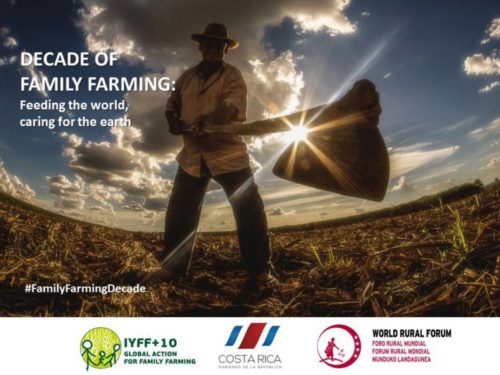
WRF
-
Jun 15
- Share post
World Rural Forum (WRF)
With the proper enabling environment, family farming can ensure a dignified life for peasant families, indigenous communities, fishers and pastoralists, and can meet consumers’ needs more appropriately and more effectively, thereby helping to stem possible future food crises. In fact, family farms produce more than 80% of the world’s food in terms of value, thus confirming family farming’s vital importance for global food security and food sovereignty for present and future generations. Family Farming is also a fundamental ally to mitigate climate change and meet the SDGs.
Through a Partnership Agreement with World Rural Forum, PIFON is undertaking to promote family farming to its members in the Pacific and as an organisation supported under the MTCP II and the PAPP projects, it will use this multi funded platform to leverage the message from its farmer organisations on family farming to be spread across the Pacific. In 2014, the UN declared it as the International Year of Family Farming (IYFF), a resolution was then adopted that the good work would continue into a decade thus the initiative is now called IYFF+10.
Under the WRF partnership, PIFON will work in Fiji with its farmer organisations as a pilot and as an initial building block to co-host a Farmers Forum in Fiji and use this forum to discuss and assist to prioritise every day issues that affect smallholder farmers.
Visit World Rural Forum for more information.
